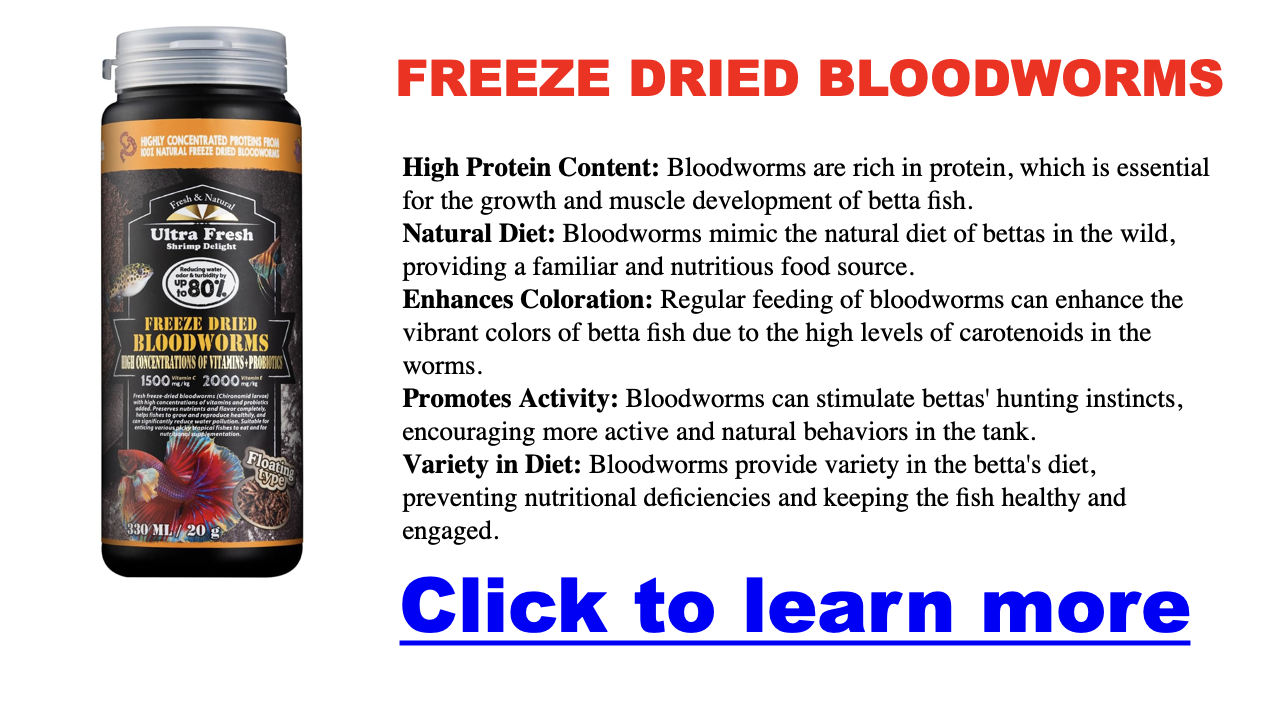Can Betta Fish Eat Goldfish Food
Picture this: you’re a new betta fish owner, excited to care for your vibrant finned friend. You’ve stocked up on all the essentials, but suddenly realize you’re out of betta food. Glancing at your fish supplies, you spot a container of goldfish food. Can you use it in a pinch?
The short answer is yes, bettas can technically eat goldfish food. However, it’s not an ideal long-term solution and can lead to health problems.
Let’s dive into the reasons why and explore better options to keep your betta happy and thriving.
Understanding Betta and Goldfish Dietary Needs
Bettas and goldfish might both be popular aquarium fish, but their dietary needs differ significantly due to their evolutionary history and natural habitats.
- Bettas: The Carnivorous Hunters: In the wild, bettas primarily feed on insects and larvae, making them obligate carnivores. Their digestive system, with its short intestinal tract, is adapted for processing meat-based foods. A diet rich in protein is crucial for their energy, growth, and overall health.
- Goldfish: The Omnivorous Grazers: Goldfish, on the other hand, are omnivores, consuming both plant and animal matter. Their digestive system is more versatile, allowing them to process a wider variety of foods. Their commercial diets reflect this, typically containing a mix of protein sources and plant matter.
The Nutritional Divide: Betta Food vs. Goldfish Food
The difference in dietary needs between these two species translates directly into their food. Here’s a breakdown of the nutritional differences between goldfish food and betta food:
- Protein Power: Betta food typically boasts a protein content of around 40-45%, essential for their carnivorous lifestyle. Goldfish food, with its lower protein content (around 25-30%), falls short of meeting a betta’s needs. Insufficient protein can cause stunted growth, weakened immune system, and other health problems.
- Carbohydrate Caution: Goldfish food often contains higher levels of carbohydrates to support their plant-based dietary needs. Bettas, however, don’t require as many carbohydrates. Excess carbs can be difficult for them to digest, potentially leading to constipation, bloating, or even swim bladder issues.
- Other Nutritional Factors: While both betta and goldfish food contain fats, vitamins, and minerals, the specific types and amounts can vary to cater to each species’ unique requirements. Additionally, some goldfish foods contain artificial color enhancers that may be harmful to bettas.
The Risks of a Goldfish Food Diet for Bettas
Feeding your betta goldfish food regularly can lead to health problems like:
- Digestive Issues: The high carbohydrate content and plant matter in goldfish food can strain your betta’s digestive system, leading to constipation, bloating, or other complications.
- Nutritional Deficiencies: A lack of sufficient protein can hinder your betta’s growth, immune function, and overall vitality.
- Potential Harm from Additives: Artificial color enhancers found in some goldfish foods can be detrimental to bettas.
While a few occasional bites of goldfish food might not cause immediate harm, it’s crucial to avoid making it a staple in your betta’s diet.
The Right Food for Your Betta: Better Alternatives
To keep your betta healthy and thriving, it’s important to provide them with a diet that meets their specific nutritional needs.
- High-Quality Betta Food: Invest in reputable brands of betta pellets or flakes. Check the ingredients list to ensure a high protein content from sources like fish meal, shrimp meal, or insects.
- Treats and Variety: Offer your betta occasional treats of frozen, freeze-dried or live foods like brine shrimp or bloodworms. These provide additional protein and enrichment.

